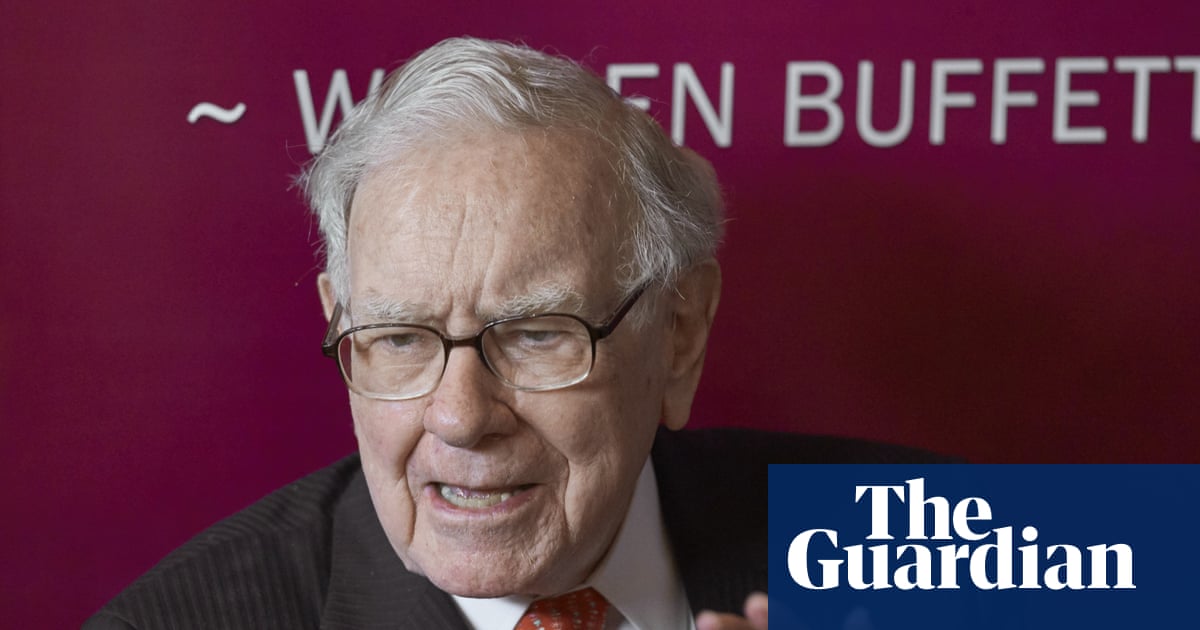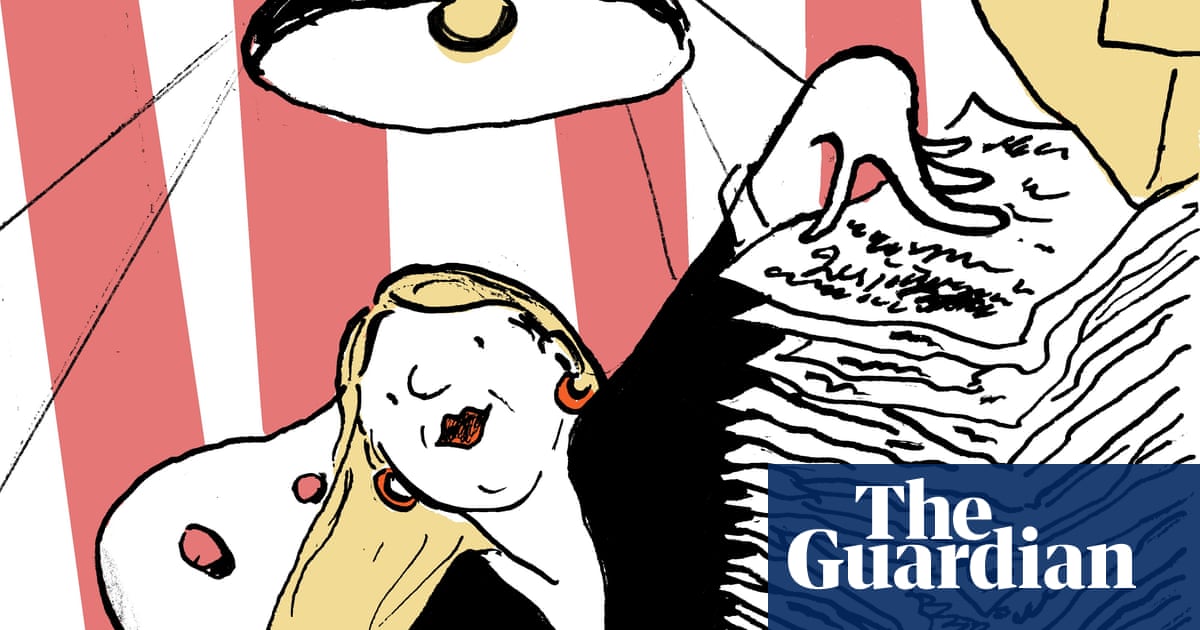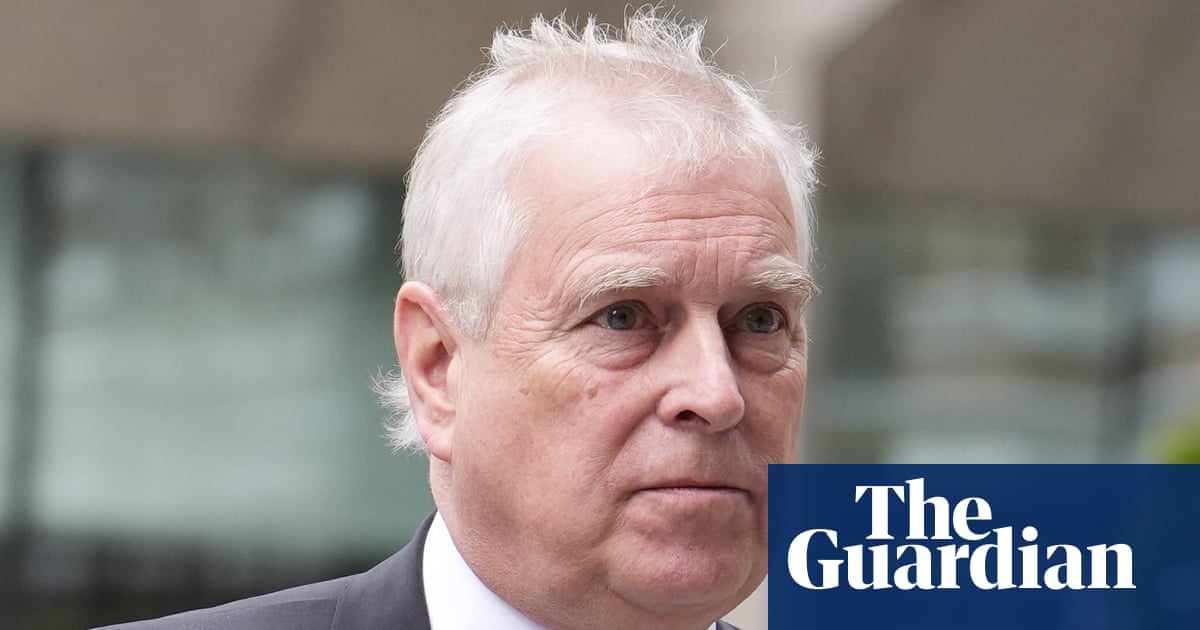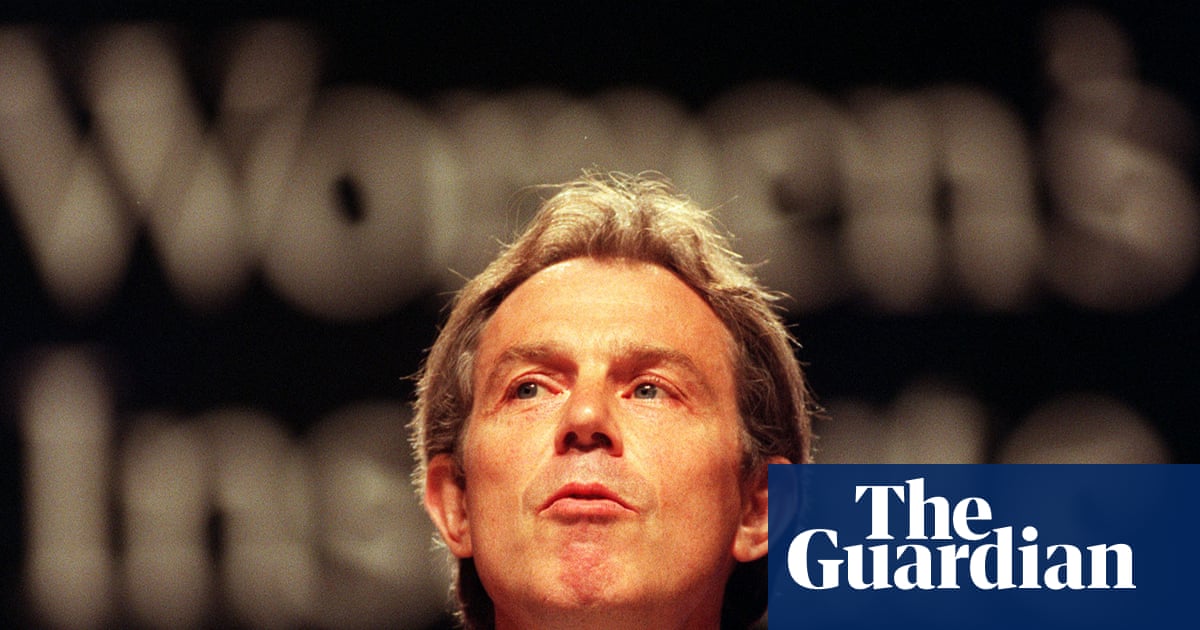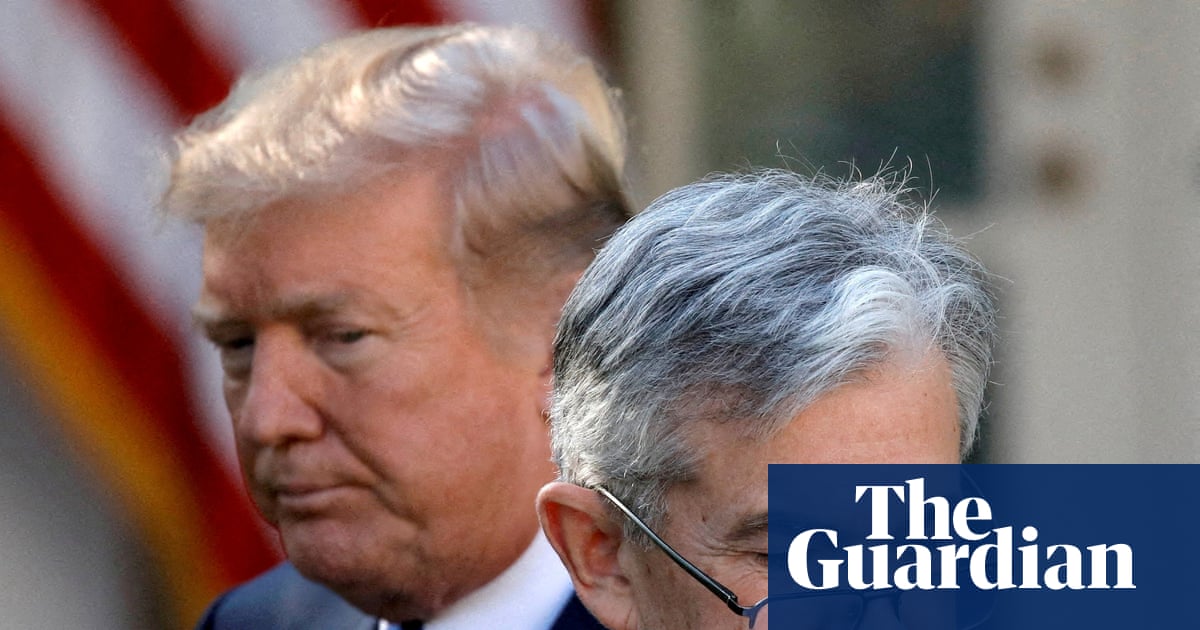It has taken barely two weeks for Donald Trump to turn the horrific killing of Charlie Kirk to his political advantage, unleashing an unprecedented peacetime assault on free speech and a free press on the back of the assassination.
Since Kirk’s death, the president and his top team have:
-
forced a private media company to suspend late-night TV star Jimmy Kimmel for inaccurate comments he made about Kirk’s suspected shooter;
-
threatened other TV networks with losing their licences should they say things Trump doesn’t like;
-
vowed to prosecute “hate speech” that is fully protected under the first amendment;
-
declared antifa a terrorist organisation in an indiscriminate attack on political ideology;
-
and told journalists covering the Pentagon that they will have their access revoked unless they agree to restrictions on their reporting.
That’s a far cry from the promise Trump made on the first day of his new presidency.
On 20 January, hours after he had been sworn in as 47th president, Trump sat at his desk in the Oval Office and applied his distinctive signature to executive order 14149 – Restoring Freedom of Speech and Ending Federal Censorship.
The order pronounced that government censorship of speech was “intolerable in a free society”. It promised that under Trump’s watch, no federal official would engage in any conduct that would “unconstitutionally abridge the free speech of any American citizen”.
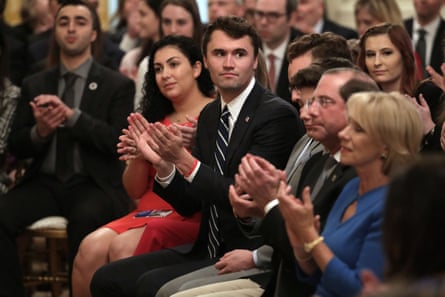
It was a bold pledge to return America to the values of free speech and expression enshrined in the first amendment of the US constitution. But for some observers following events that day, the executive order was to be taken with a large pinch of salt.
“I knew at the moment that the ink was not even dry, that executive order 14149 was a load of BS,” said Matt Welch, editor-at-large of the libertarian magazine Reason. “I knew it would not last.”
Despite the administration’s rush to censorship as a result of Kirk’s killing, Trump has so far enjoyed almost complete support from the Republican party and his wider “Make America great again” (Maga) movement. Relatively few voices from the right of American politics have cried foul.
But those voices are pointed, and in the longer term potentially critically important. Many of them subscribe to libertarianism, with its emphasis on individual rights, civil liberties and limited government. Or as Reason puts it, devotion to “free minds and free markets”.
Other free speech critics have raised their voices from the wider conservative movement, while a few brave souls have even spoken out against Trump from within the Republican party. Collectively, they articulate a conservative and libertarian critique of Trump’s second presidency that, given that it comes nominally from his own side, may carry some weight with the president as he proceeds to pulverise constitutional norms.
Their presence – lonely though at times it may seem – underlines that Trump and his Maga army have not yet secured an absolute monopoly of thought on the right. As guardians of free speech trying to hold back an increasingly authoritarian tide, they can also offer tentative clues as to how American conservatism might one day claw its way back from Maga’s iron grip.
But for now they remain engaged in a long, uphill battle. “We are locked in a type of memetic combat,” Welch said. “We’re standing on the sidelines trying to get their attention, telling them that each new development is making it worse, and they are not listening at all.”
Rightwing thinktanks have been central to Trump’s second presidency. The Heritage Foundation presented him with the blueprint for his incendiary return to office: the 920-page Project 2025.
America First Legal, founded by the White House deputy chief of staff Stephen Miller, has provided legal ballast for many of Trump’s key ambitions. They include tearing down diversity, equity and inclusion (DEI) programs and initiating mass deportations.
But as Trump has begun aggrandising his own power and wielding it against his opponents, a separate heavyweight thinktank, the libertarian Cato Institute, has emerged as a thorn in the president’s side.
Initially, Cato’s belief in small government and deregulation led it to show enthusiastic support for the Maga agenda.
Within 48 hours of Trump’s second inauguration, the thinktank had flagged up 22 of his predecessor Joe Biden’s executive orders including several countering the climate crisis and enhancing healthcare, all of which Trump dutifully revoked. It also offered its own blueprint, in this case a manual for Elon Musk and his demolition crew, the “department of government efficiency”, that was so well received that Rolling Stone dubbed Cato “Doge’s unofficial think tank”.
More recently, however, Trump’s egregiously unconstitutional assault on the first amendment has goaded Cato into speaking out as a rare but influential adversary on the right. Thomas Berry, Cato’s director of constitutional studies, told the Guardian that several of Trump’s recent actions had offended one of the institute’s most fundamental values.
“When government officials use the power of the state either to suppress speech or tilt the free marketplace of ideas, that’s incredibly dangerous in the long term. It places a core restriction on individual liberty – the right to say what you want and say what you believe,” he said.
Cato began objecting to Trump’s authoritarian tendencies well before Kirk’s death. In June the thinktank joined a coalition of groups in filing an amicus brief supporting Harvard in its lawsuit against the Trump administration after billions of federal dollars were withheld from the university ostensibly as punishment for its failure to combat antisemitism.
Cato also expressed concern about Mahmoud Khalil and Rümeysa Öztürk, students from Columbia and Tufts universities respectively, whom the administration tried to deport after their public criticism of Israel’s war in Gaza. Berry called the administration’s yanking of Harvard funding and the student immigration actions “core infringements on academic freedom and speech”.
He also denounced Trump’s executive order last month vowing to prosecute anyone burning the American flag. As he pointed out, “there is ironclad legal precedent that flag burning is protected speech.”

Since Kirk’s killing, Berry has watched the unfolding of Trump’s “free speech for me, but not for thee” response with mounting alarm. Disney’s temporary cancellation of Kimmel’s late-night show for misrepresenting the Kirk suspect as a Maga supporter after threats of government penalties from the Federal Communications Commission (FCC), was in Berry’s estimation a clear example of “government power being used to suppress speech that the administration doesn’t like”.
Then there was the intervention of Pam Bondi, the US attorney general, who days after Kirk’s death vowed to prosecute hate speech. Like flag burning, hate speech is fully protected under the first amendment, as the country’s top law enforcement official ideally should have known.
Ironically, Kirk himself was clear on this point, saying last year: “Hate speech does not exist legally in America. There’s ugly speech. There’s gross speech. There’s evil speech. And ALL of it is protected by the first amendment.”
Berry also regards as a free speech violation Trump’s threats to go against leftwing groups he dislikes. On Monday the president designated antifa a “domestic terrorist organization”, a move that potentially breaches the first amendment by criminalising political ideology.
All of these quick-fire steps after Kirk’s assassination towards controlling public discourse leaves Berry profoundly apprehensive. “I’m very worried about what the executive branch is trying to do,” he said.
In particular, the Cato director is concerned about what he calls the “capitulation factor”. He fears that private companies such as Disney, ABC’s owner that suspended Kimmel for six days before the comic was allowed back on air on Tuesday, will settle with Trump rather than stand up for constitutional rights.
“Long term, we’ll get through this,” Berry said. “But in the short term a lot of speech is going to be chilled without ever getting into court, and that’s very, very bad.”
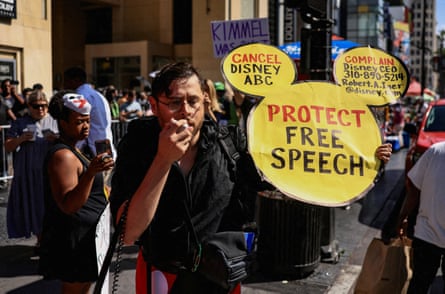
Opposition to the assault on free speech goes beyond the libertarian right. Other prominent public figures from conservative and libertarian circles have spoken out, indicating fissures that, should they grow, could challenge Trump’s Maga hegemony.
Bari Weiss, a rising star on the anti-woke right who is being reportedly groomed for a top job at CBS, has castigated the president in her online outlet, the Free Press. In an editorial, the site decried Trump’s many threats against media organisations as a “case where the medicine is worse than the disease”.
In Congress, senator Ted Cruz, normally a reliable Trump acolyte, warned the president to avoid habitually bullying media companies. If he did, it would “end up bad for conservatives”.
Thomas Massie, a Republican congressman from Kentucky who has led the charge to have the Epstein files released, compared Bondi’s threat to prosecute hate speech to George Orwell’s dystopian “thought crimes”.
Even the Maga cheerleader Tucker Carlson cleared an episode of his online show to rail against the risk of hate speech laws being introduced in America. Were that to happen, Carlson said, then civil disobedience would be called for.
“Because if they can tell you what to say, they’re telling you what to think, there is nothing they can’t do to you because they don’t consider you human.”
So how did it come to this? How did Trump go from executive order 14149 to threatening an ABC reporter to his face last week that he might face prosecution “because you treat me so unfairly”?
How did JD Vance move from pledging in February that under Trump’s leadership “we may disagree with your views but we will fight to defend your right to offer it in the public square”, to calling for a mass doxing of anyone who had celebrated Kirk’s murder?
How did the FCC chair Brendan Carr veer from having denounced in 2023 government censorship as the “authoritarian’s dream”, to using his federal power to force Kimmel’s suspension with the mob-like menace: “We can do this the easy way or the hard way?”
Eugene Volokh, a libertarian conservative who is a senior fellow at Stanford’s Hoover Institution, has a word for the Trump team’s razor sharp U-turn on free speech. He calls it “censorship envy”.
“It’s human nature to want to restrict speech that you disapprove of, to retaliate,” he said. “People are motivated by censorship envy – the idea that the other side got to suppress speech they disliked, so I should jump on the bandwagon and get some of that action too.”
Volokh added that in his opinion Trump’s get-you-back censorship was a mistake. “It’s bad for the country. It’s bad for the conservative movement.”
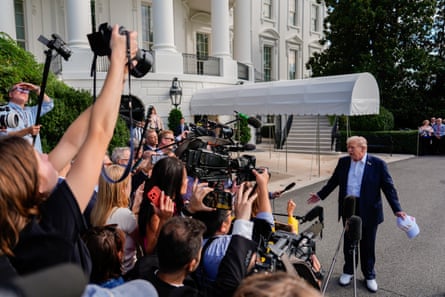
That admonition was echoed by Sabrina Schaeffer, a member of the executive team of the R Street Institute, which preaches classical liberalism, individual liberty and free markets. She said that she has been scratching her head over the past few days as so many Republicans applauded the clampdown on free speech.
“I know they’re tired of ‘woke’ politics. But this should be a cautionary tale, because one day Democrats will hold the levers of power again and then they will be even more empowered to shut down dissenting views.”
Welch, who regards his strain of libertarianism as neither of the right nor left, sees the current moment against the long arch of history. Under Ronald Reagan, the Republican party was a broad church that combined conservatism with libertarian activism, with free speech as one of its central tenets.
What Trump has unleashed, by contrast, “is going against Reagan and 40 years of American politics. People are so addicted to power right now that they are throwing principles out the window.”
It was Republicans, Welch pointed out, that in the 1970s and 80s led the charge on free speech grounds against the FCC’s so-called fairness doctrine that required TV networks to carry opposing viewpoints on controversial public issues. That is a world away from the Republican chair of the FCC threatening a broadcast company over one comment from a comedian.
“I care about the federal government telling a private broadcaster how they are supposed to conduct their business,” Welch said. “That’s crazy.”
Cato’s Berry is clearly disturbed by the turn of events, but he has not despaired. For him, the way out of this quagmire lies with the American judiciary and the first amendment itself, which he regards as the strongest safeguard of free speech in the world.
“I remain confident that the courts will uphold the principles that the government cannot be biased, that it cannot chill speech through selective enforcement, that there is no law against hate speech.”
As for Welch, he draws comfort in the storm from a more amorphous source. He looks to the American spirit, and a characteristic within it that he believes has been integral since even before the country’s founding.
That is, the ability of Americans to trash each other.
“We criticise, always have done,” he said. “We have just always been kind of assholes, cheeky.”
Welch sees the portrayal of Trump in the latest season of the animated sitcom South Park as a seamless continuation of this trait. The president is depicted as a censorship-addicted dictator sleeping with the devil.
That gives Welch hope.
“I feel like the South Park in all of us will eventually win,” he said. “It’s the natural place for us to be, and by the time Trump finally goes, he’ll find himself on the losing end.”

 3 months ago
51
3 months ago
51
